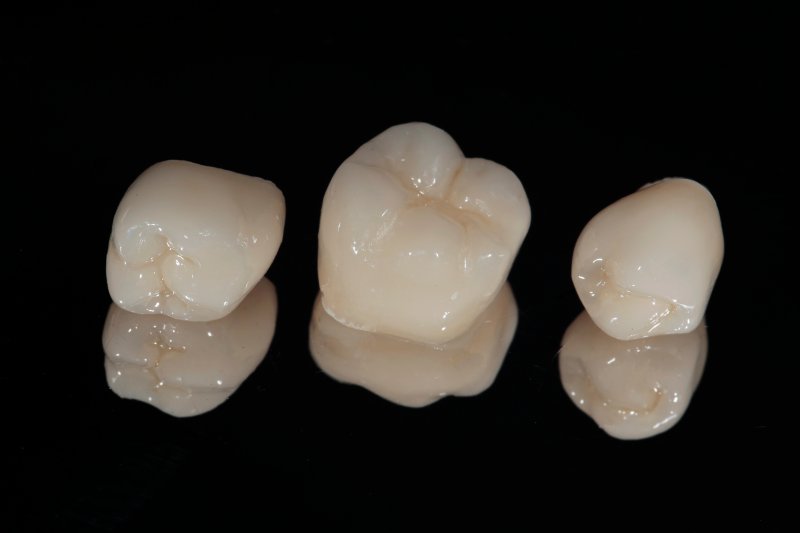
Dental crowns are a vital part of restorative dentistry, used to strengthen and protect damaged teeth. While they are designed to be durable, dental crowns are not immune to wear and tear. Over time, you might notice signs that your dental crown needs to be replaced. In this blog post, we’ll explore the key indicators that it’s time to consult your dentist for a potential crown replacement.
Understanding Dental Crowns
Before diving into the signs of trouble, it’s essential to understand what dental crowns are and their purpose. Dental crowns are custom-made caps placed over a tooth to restore its shape, size, strength, and appearance. They can be made from various materials, including porcelain, metal, or a combination of both. Typically, dental crowns are designed to last for many years, but they can still experience issues.
Signs That Your Dental Crown Needs Replacement
- Pain and Discomfort: One of the most common signs that your dental crown may need replacement is persistent pain while chewing. You might also experience sensitivity to hot or cold foods and beverages.
- Visible Damage: Check your dental crown for visible damage, such as chips, cracks, or fractures. Discoloration or stains on the crown’s surface are also indicators that something might be amiss.
- Gum Issues: Pay attention to your gum health. Receding gums or gum inflammation around the crowned tooth can suggest that the crown needs attention.
- Crown Mobility: A well-fitted dental crown should not feel loose or wobbly. If you notice any movement or increased mobility of the crown, it’s time to consult your dentist.
- Adjacent Teeth Changes: Changes in the teeth adjacent to the crown can also be a sign. These changes may include shifting or misalignment of nearby teeth or increased sensitivity.
- Bad Taste or Odor: If you notice a persistent bad taste or odor around the crowned tooth, it could indicate a problem with the crown or the underlying tooth structure.
- Compromised Functionality: Dental crowns should not hinder your ability to bite or chew properly. Difficulty in biting or discomfort while eating can suggest issues with the crown.
When to Consult a Dentist
It’s crucial to remember that only a dentist can accurately diagnose and address crown-related issues. If you notice any of the signs mentioned above, don’t delay in seeking professional advice. Your dentist will use X-rays and diagnostic tools to assess the condition of your dental crown and recommend the most appropriate course of action.
Maintaining the health of your dental crown is essential for your overall oral well-being. By staying vigilant for signs of trouble and seeking timely dental care, you can ensure that your dental crown serves you well for many years to come. Regular dental check-ups and good oral hygiene practices will also play a significant role in preserving your smile’s longevity. So, if you spot any red flags, remember that your dentist is your best ally in keeping your dental crown and your oral health in excellent condition.
About Our Practice
At Elwood Avenue Dental, we redefine the dental experience. Our friendly team, comprehensive services, comfort-focused approach, and cutting-edge technology make visits enjoyable. Dr. Salayta and Dr. Schuyler, both parents, prioritize family care, ensuring a warm and non-judgmental atmosphere. Join our Jenks community and discover a dental home that treats you the way we’d want to be treated, from start to finish.
If you have any questions about dental crowns, we can be reached at our website or by phone at (918) 299-2298.

